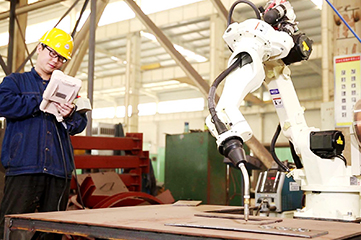Hot Oil Pump Maintenance and Repair Solutions for Optimal Performance and Reliability
Hot Oil Pump Service Ensuring Efficiency and Reliability
In various industrial applications, hot oil pumps play a critical role in maintaining operational efficiency. These pumps are designed to transfer high-temperature fluids, typically oil, through a system that demands precise control and safety. Given their importance, the service and maintenance of hot oil pumps are paramount to prevent downtime and ensure the longevity of the equipment.
Understanding Hot Oil Pumps
Hot oil pumps are specialized devices that handle the transportation of hot oil or thermal fluids used in heating systems, manufacturing processes, and various heating applications. These pumps can withstand elevated temperatures and are built with robust materials to handle the specific demands of high-temperature environments. While they are essential for many processes, they also come with unique challenges related to their maintenance and service.
Importance of Regular Maintenance
Regular maintenance of hot oil pumps is critical for several reasons
1. Preventing Downtime A breakdown in hot oil pump services can lead to significant downtime, affecting the entire production line. Regular checks and maintenance can identify potential issues before they lead to a complete failure.
2. Safety Handling hot oil represents a safety hazard. A malfunctioning pump can lead to leaks or spills that pose risks to operators and the environment. Routine servicing ensures that safety protocols are met and that equipment is functioning correctly.
3. Cost Efficiency By maintaining hot oil pumps, companies can save on replacement costs and energy expenses. A well-maintained pump operates more efficiently, consuming less energy and providing better performance.
4. Longevity of Equipment Regular service extends the life of the pump. By using the right lubricants and replacing worn parts promptly, companies can ensure their equipment remains in optimal condition.
Key Service Components
hot oil pump service

The service for hot oil pumps generally includes several critical components
- Inspection Regular visual inspections help identify wear and tear before they become significant issues. Technicians should check seals, bearings, and other components for signs of damage or leaks.
- Lubrication Proper lubrication is essential in maintaining pump function. Technicians must ensure that the lubrication used is suitable for high temperatures and that levels are maintained.
- Temperature Monitoring Since these pumps operate at high temperatures, regular monitoring is essential. This includes checking the fluid temperature and ensuring it remains within operational parameters.
- Seal Replacement Over time, seals can degrade due to the high temperatures and pressures they are subjected to. Regularly scheduled replacements can prevent leaks and potential failures.
- System Checks Evaluating the entire system connected to the hot oil pump for blockages or restrictions is critical. This includes checking pipes, filters, and valves to ensure smooth operation.
Choosing a Service Provider
Selecting a qualified service provider for hot oil pump maintenance is essential. Look for technicians with experience in handling high-temperature fluids and a proven track record in the industry. It’s vital to engage a company that uses quality parts and has the training to work safely and effectively with dangerous substances.
Conclusion
In conclusion, hot oil pumps are indispensable in many industrial processes, and their health is directly tied to operational success. Understanding their significance and committing to a regular maintenance schedule is vital for safety, efficiency, and cost management. By prioritizing hot oil pump service, businesses can ensure smoother operations and contribute actively to their long-term success and reliability. The benefits of preventive care far outweigh the potential risks of neglect, making professional servicing not just an option, but a necessity in any plant operation involving hot oil pumps.
-
Custom Steam Boilers Manufacturer | AI-Enhanced EfficiencyNewsJul.31,2025
-
Top Electric Steam Boiler Makers | AI-OptimizedNewsJul.31,2025
-
Top Electric Steam Boiler Manufacturers - High Efficiency SolutionsNewsJul.30,2025
-
Top Electric Steam Boiler Manufacturers – Efficient Industrial SolutionsNewsJul.29,2025
-
Top Electric Steam Boiler Manufacturers | Reliable Industrial SolutionsNewsJul.29,2025
-
OEM Steam Boiler Solutions for Custom Needs | High Efficiency & VersatilityNewsJul.29,2025

